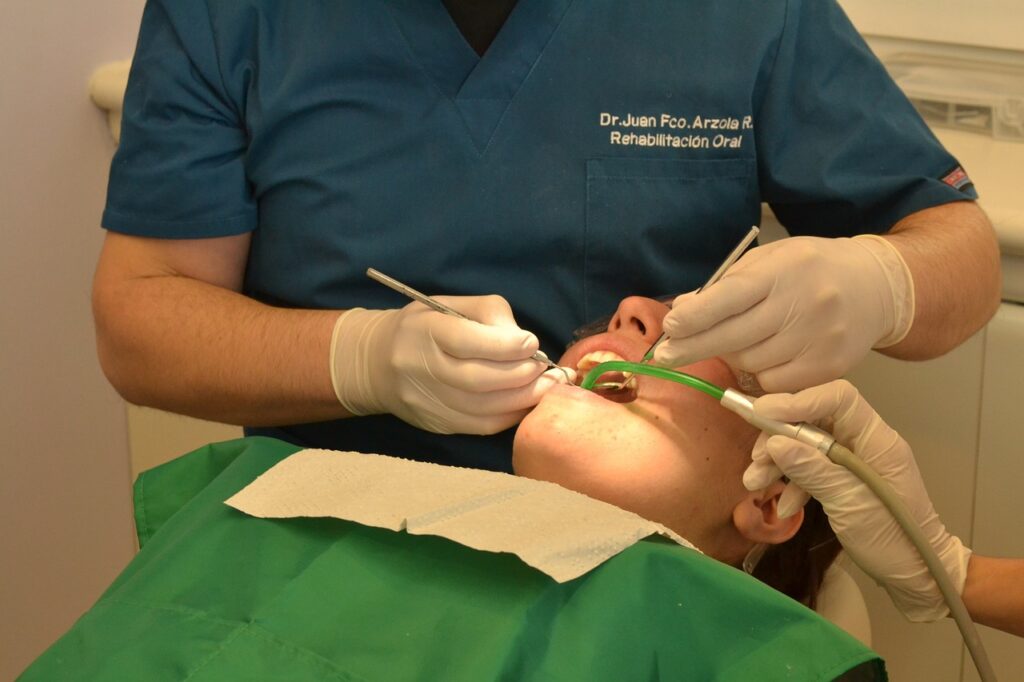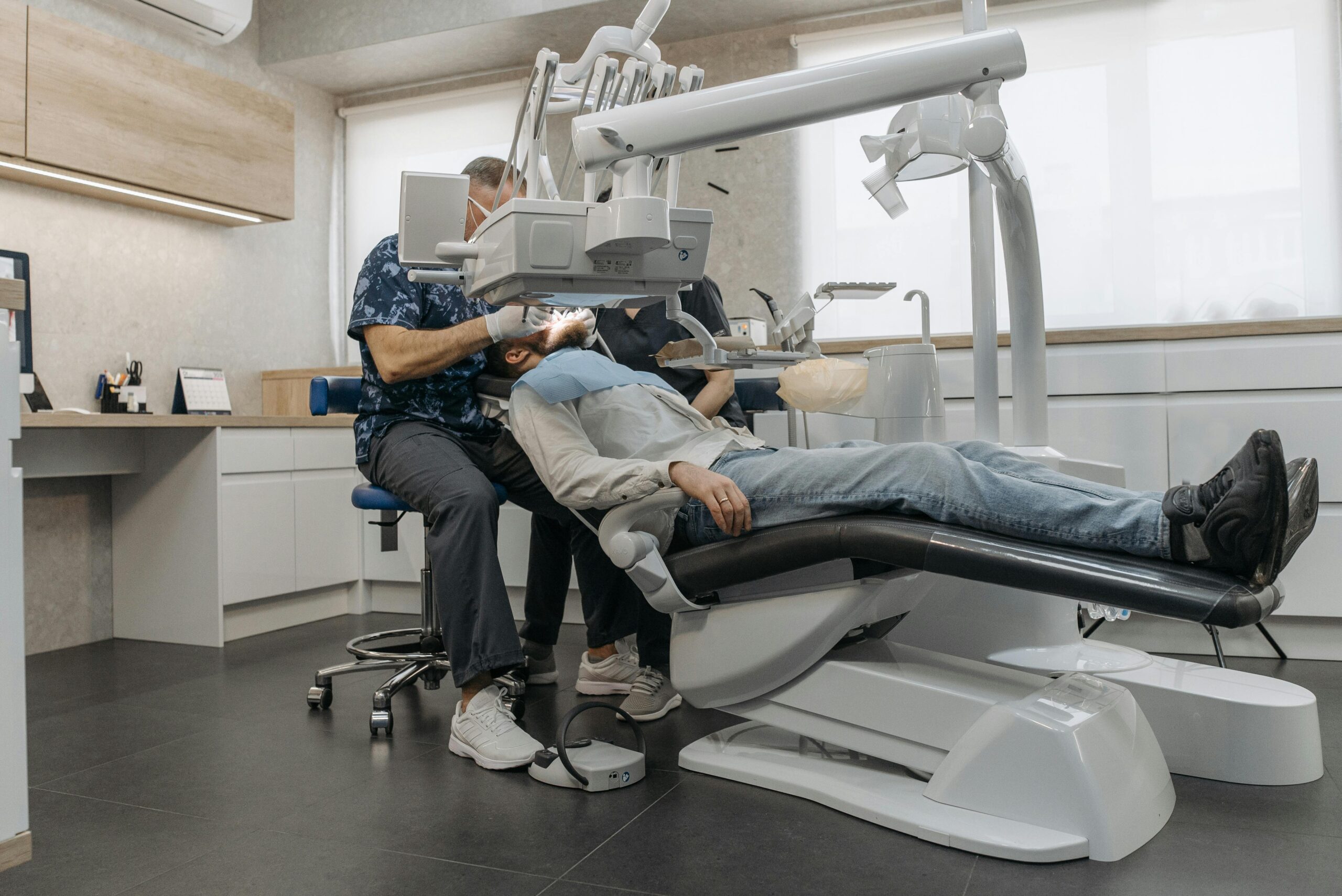How to become a Periodontist: Complete Guide

Introduction
The dental industry encompasses various specialties, each playing a crucial role in maintaining oral health. Among these is periodontics, a branch of dentistry focused on the prevention, diagnosis, and treatment of diseases affecting the gums and supporting structures of the teeth. Periodontists specialize in addressing conditions such as gum inflammation, periodontal disease, and bone loss around the teeth. If you’re interested in pursuing a career as a periodontist, this complete guide will provide you with all the necessary steps and information to achieve your goal, from educational requirements to career opportunities in the field.
Who is Periodontist and what do Periodontist do?
A periodontist is a dental specialist who focuses on the prevention, diagnosis, and treatment of diseases affecting the gums and supporting structures of the teeth. These professionals specialize in addressing conditions such as gum inflammation (gingivitis), periodontal disease (periodontitis), and bone loss around the teeth (alveolar bone loss). Periodontists play a crucial role in maintaining oral health by treating and managing these conditions, which can lead to tooth loss if left untreated. They work closely with general dentists and other dental specialists to provide comprehensive care for patients with periodontal issues.
– Diagnosis: Periodontists examine patients’ gums and surrounding tissues to identify signs of gum disease and other periodontal conditions.
– Treatment Planning: Based on their diagnosis, periodontists develop customized treatment plans tailored to each patient’s needs, which may include non-surgical therapies or surgical interventions.
– Non-Surgical Therapies: Periodontists perform procedures such as scaling and root planing (deep cleaning) to remove plaque and tartar from below the gum line and promote gum healing.
– Surgical Interventions: In cases of advanced gum disease or severe bone loss, periodontists may perform surgical procedures such as gum grafting, bone regeneration, or pocket reduction surgery to restore oral health and stabilize the teeth.
– Dental Implants: Periodontists are also trained in the placement of dental implants, which are used to replace missing teeth and restore oral function and aesthetics.
– Maintenance and Follow-up Care: Periodontists provide ongoing maintenance and monitoring for patients with periodontal disease to prevent recurrence and maintain oral health.
– Collaboration: Periodontists work collaboratively with general dentists and other dental specialists, such as prosthodontists and oral surgeons, to coordinate comprehensive treatment plans for patients with complex dental needs.
– Patient Education: Periodontists educate patients about the importance of good oral hygiene practices and provide guidance on how to maintain healthy gums and prevent periodontal disease.
What are the educational qualifications required to become Periodontist?
To become a periodontist, individuals must complete several educational and training requirements:
- Bachelor’s Degree:
– Aspiring periodontists typically begin by completing a bachelor’s degree from an accredited college or university. While specific majors are not required, most students choose to major in a science-related field such as biology, chemistry, or biochemistry.
- Dental School:
– Completion of a Doctor of Dental Surgery (DDS) or Doctor of Dental Medicine (DMD) degree from an accredited dental school. Dental school typically lasts four years and includes coursework in basic sciences, dental sciences, and clinical training.
- Postgraduate Education in Periodontics:
– Following dental school and licensure, aspiring periodontists must complete advanced education and training in periodontics through a residency program accredited by the Commission on Dental Accreditation (CODA).
– Periodontics residency programs typically last three years and provide intensive training in the diagnosis, prevention, and treatment of periodontal diseases, as well as surgical and non-surgical periodontal therapies.
– Residents gain hands-on experience treating patients with various periodontal conditions under the supervision of experienced periodontists.
- Board Certification (Optional):
– While not required, periodontists may choose to pursue board certification through the American Board of Periodontology (ABP).
– Board certification involves completing additional training beyond residency, passing a comprehensive written examination, and presenting cases for review by the ABP.
– Board-certified periodontists demonstrate proficiency in the field and may have enhanced career opportunities and credibility.
Overall, the path to becoming a periodontist requires a significant investment of time and dedication, encompassing undergraduate education, dental school, licensure, and specialized postgraduate training in periodontics.
Which licenses are required to become Periodontist?
After graduating from dental school, individuals must obtain licensure to practice dentistry in their state. Licensure requirements vary by state but typically include passing written and practical examinations administered by the state dental board.
Where do Periodontist work?
Periodontists primarily work in private practice settings, either independently or as part of a group practice with other dental specialists. They may also work in multidisciplinary dental practices alongside general dentists, prosthodontists, oral surgeons, and other specialists to provide comprehensive care for patients with complex dental needs. Additionally, periodontists may be employed in academic institutions, hospitals, or community health centers, where they may teach, conduct research, or provide specialized periodontal care to patients. Overall, periodontists have diverse opportunities to practice in various settings, catering to different patient populations and treatment needs.
How long does it take to become a Periodontist?
Becoming a periodontist typically requires several years of education and training. After completing a bachelor’s degree, individuals must attend dental school, which typically takes four years to earn a Doctor of Dental Surgery (DDS) or Doctor of Dental Medicine (DMD) degree. Following dental school, aspiring periodontists undergo advanced training through a three-year residency program in periodontics accredited by the Commission on Dental Accreditation (CODA). Overall, the journey to becoming a periodontist typically spans around 7 to 8 years beyond undergraduate education.
How much does a Periodontist make in a year?
Periodontists typically earn a substantial income due to their specialized training and expertise. On average, periodontists in the United States earn around $200,000 to $300,000 per year. However, incomes can vary based on factors such as location, years of experience, type of practice (private practice vs. academic institution), and patient volume. Periodontists who own their practices or offer specialized services such as implant placement may earn higher salaries. Overall, periodontists enjoy competitive salaries reflective of their advanced training and the demand for their specialized skills in treating gum diseases and performing periodontal surgeries.
What hours do Periodontist work?/ What are the work hours of Periodontist?
Periodontists typically work full-time hours, with schedules often resembling those of other dental specialists. This generally entails working Monday through Friday, from around 8 or 9 AM to 5 or 6 PM. Some periodontists may offer evening or weekend appointments to accommodate patients’ schedules or handle emergency cases. The exact work hours can vary depending on factors such as patient demand, practice setting, and personal preferences. While most periodontists have regular office hours, those employed in hospitals or academic institutions may have more varied schedules, including on-call shifts or teaching responsibilities.
What qualities must a Periodontist have?
Qualities essential for periodontists include:
- Clinical Skills: Proficiency in diagnosing and treating various periodontal conditions and performing surgical and non-surgical periodontal therapies.
- Attention to Detail: Ability to meticulously examine and assess patients’ oral health, including the gums and supporting structures of the teeth.
- Manual Dexterity: Precise hand-eye coordination and steadiness to perform delicate surgical procedures and manipulate dental instruments effectively.
- Communication Skills: Clear and effective communication with patients to explain treatment options, procedures, and post-operative care instructions.
- Empathy and Compassion: Sensitivity to patients’ concerns and fears, providing reassurance and support throughout treatment.
- Critical Thinking: Analytical skills to evaluate complex cases, develop appropriate treatment plans, and anticipate potential complications.
- Problem-Solving Abilities: Ability to address unexpected challenges or complications during procedures and adapt treatment plans as needed.
- Patient Education: Providing patients with comprehensive information about periodontal health, preventive measures, and the importance of oral hygiene practices.
- Teamwork and Collaboration: Working collaboratively with other dental professionals, including general dentists, oral surgeons, and prosthodontists, to coordinate comprehensive patient care.
- Ethical and Professional Conduct: Upholding high ethical standards and professionalism in all aspects of patient care and practice management.
What are some related jobs Periodontist can have?
Related jobs that periodontists can pursue include:
- Implantologist: Specializes in the placement and restoration of dental implants, often collaborating with periodontists to address implant-related periodontal concerns.
- Oral and Maxillofacial Surgeon: Performs surgical procedures on the mouth, jaws, and face, including complex oral surgeries and treatments for periodontal diseases.
- Prosthodontist: Focuses on the restoration and replacement of missing teeth and oral structures, often working closely with periodontists to plan and execute comprehensive treatment plans.
- Dental Educator: Teaches periodontics or related subjects in dental schools or residency programs, sharing expertise and training the next generation of dental professionals.
- Public Health Dentist: Works to improve oral health at the community or population level, addressing periodontal disease prevention and treatment in underserved populations.
- Researcher: Conducts scientific studies and clinical trials to advance knowledge in periodontics and develop new treatment modalities and technologies.
Periodontist Job Industry Challenges
Periodontists face several industry trends and challenges. One notable trend is the increasing emphasis on preventive care and early intervention in periodontal disease, driven by a growing awareness of its systemic health implications. Additionally, advancements in technology, such as digital imaging and laser therapy, are transforming periodontal treatment approaches, offering more precise and minimally invasive options. However, challenges include the rising prevalence of periodontal diseases, particularly among aging populations, and disparities in access to periodontal care, especially in underserved communities. Periodontists must also navigate evolving reimbursement models and regulatory requirements while staying abreast of emerging research and treatment modalities.
How to build a professional network in the Periodontist industry?
Building a professional network in the periodontist industry involves active participation in professional organizations and events. Joining associations such as the American Academy of Periodontology (AAP) provides opportunities to connect with fellow periodontists through conferences, seminars, and online forums. Engaging in continuing education courses and study clubs allows for collaboration and knowledge exchange with peers. Volunteering for dental outreach programs or community events fosters relationships while giving back to the community. Utilizing social media platforms like LinkedIn can also facilitate networking by connecting with colleagues, sharing insights, and staying informed about industry trends and opportunities.
Get a high paying Periodontist job.
Ready to take your career as a periodontist to the next level and secure a high-paying job in the dental industry? Look no further than Pulivarthi Group. As a premier staffing agency specializing in dental placements, we have a vast network of top-tier employers seeking skilled periodontists like you to join their teams. By partnering with Pulivarthi Group, you’ll gain access to exclusive job opportunities in prestigious practices and clinics nationwide, offering competitive salaries and rewarding career growth prospects. Don’t settle for less than you deserve. Join Pulivarthi Group today and unlock the door to high-paying periodontist jobs that align with your expertise and aspirations in the dynamic dental industry.
Related articles

Maximizing Productivity with Efficient Dental Office Management
Discover strategies to boost productivity in your dental office through effective management.

The Role of Temporary Staffing in Managing Dental Practice Workflows
Learn how temporary staffing can help streamline workflows and improve efficiency in dental practices.

Overcoming the Challenges of Veterinary Recruitment: Strategies for Success
Discover effective strategies to overcome the challenges of veterinary recruitment and attract top veterinary talent with our guide.

How to Ensure Compliance with Dental Industry Regulations
Find out essential steps to ensure your dental practice complies with industry regulations.
Apply for Jobs
-
26 Jul 2024

Netskope Database Engineer
Job Title: Netskope Database Engineer Location: Remote Duration: 6 months Company Overview: Pulivarthi Group is a premier global provider of staffing and IT technology solutions, renown
Remote : YesTax Terms: C2C, W-2, 1099 -
26 Jul 2024

Chatbot Developer
Job Title: Chatbot Developer Location: Remote Duration: Long Term Company Overview: Pulivarthi Group is a premier global provider of staffing and IT technology solutions, renowned for d
Remote : YesTax Terms: C2C, W-2, 1099 -
26 Jul 2024

WebSphere Administrator
Job Title: WebSphere Administrator Duration: Long-term Location: 100% Remote Company Overview: Pulivarthi Group is a premier global provider of staffing and IT technology solutions, ren
Remote : YesTax Terms: C2C, W-2, 1099 -
25 Jul 2024

Reltio MDM Developer
Job Title: Reltio MDM Developer Location: Remote Company Overview: Pulivarthi Group is a premier global provider of staffing and IT technology solutions, renowned for delivering exceptio
Remote : YesTax Terms: C2C, W-2, 1099 -
25 Jul 2024

Einstein AI Consultant
Job Title: Einstein AI Consultant Location: Remote Company Overview: Pulivarthi Group is a premier global provider of staffing and IT technology solutions, renowned for delivering except
Remote : YesTax Terms: C2C, W-2, 1099 -
25 Jul 2024

BICC Admin
Job Title: BICC Admin Location: Remote Company Overview: Pulivarthi Group is a premier global provider of staffing and IT technology solutions, renowned for delivering exceptional servic
Remote : YesTax Terms: C2C, W-2, 1099
For Employers
For Talent
Quick Links
-
1188 Stonecrest Blvd, Ste 103,
Tega Cay, South
Carolina, 29708
Socials
©Copyright 2024 Pulivarthi Group

